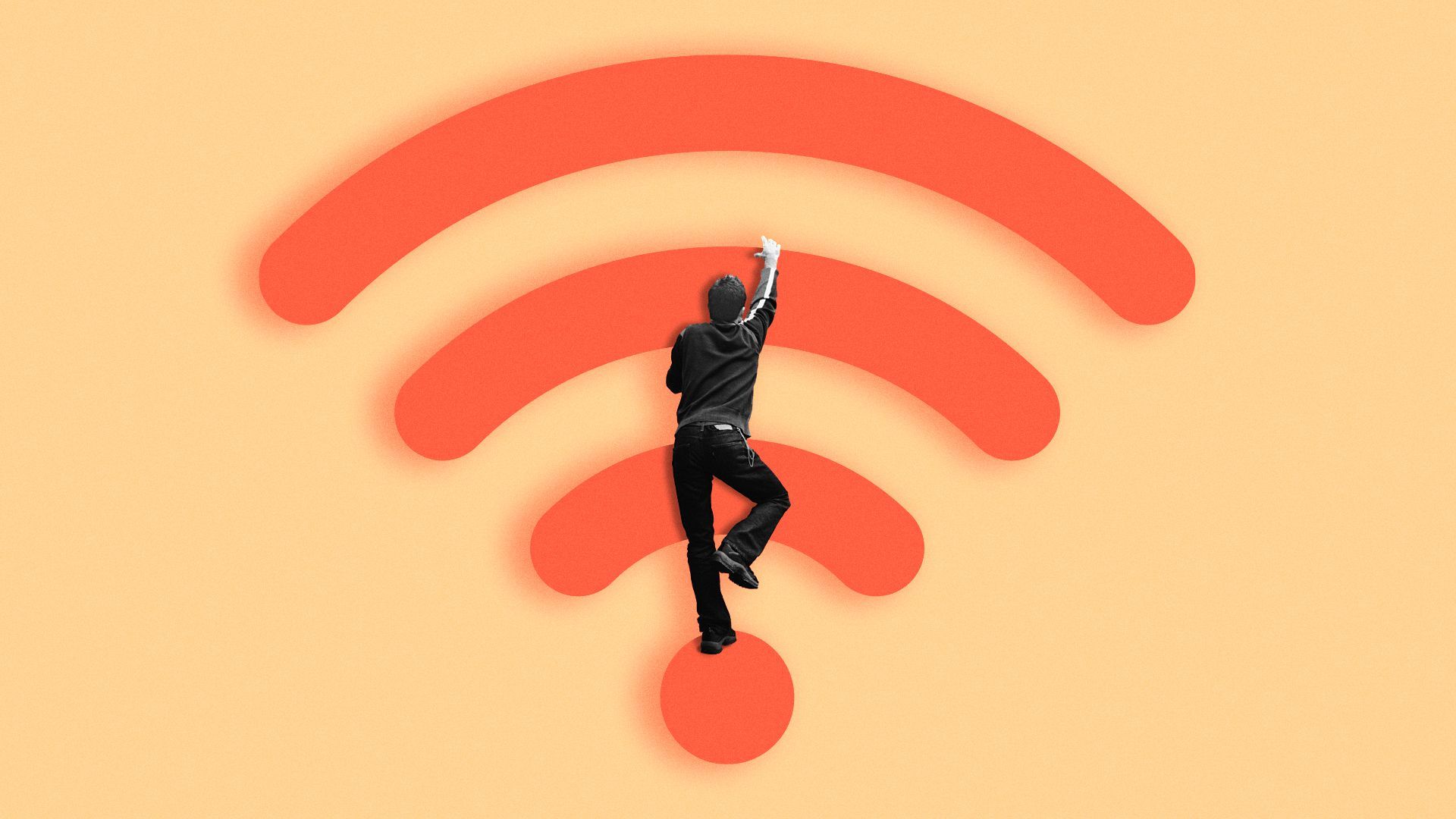Internet becomes battleground in Russia's Ukraine invasion
Add Axios as your preferred source to
see more of our stories on Google.

Illustration: Maura Losch/Axios
Social media platforms are beginning to crack down on Russian state media in response to the Kremlin's efforts to tighten controls around internet communications.
Why it matters: Tech giants that provide services around the world prefer not to take sides in conflicts where they operate in both combatants' territory, but Russia's invasion of Ukraine is making that stance tough to maintain.
Driving the news: Google said late Saturday it is pausing monetization of Russian state-funded media across its platforms, hours after its subsidiary YouTube announced a similar measure, citing "extraordinary circumstances in Ukraine."
- A YouTube spokesperson noted it will also be "significantly limiting recommendations to these channels."
- Facebook parent Meta on Friday said it would also prohibit Russian state media "from running ads or monetizing on our platform anywhere in the world," per a tweet from its head of security policy, Nathaniel Gleicher.
- Twitter also said Friday it would temporarily pause advertisements in Ukraine and Russia "to ensure critical public safety information is elevated and ads don’t detract from it."
State of play: Social networks have for many months labeled accounts for outlets such as RT and Sputnik as Russian state media. Russia is beginning to push back on efforts to fact-check content from those accounts.
- Twitter has been restricted in Russia, as of Saturday morning, according to data forensics from internet monitoring group NetBlocks.
- On Friday, Meta president of global affairs Nick Clegg confirmed that Russia had partially restricted the platform after Facebook refused to stop fact-checking and labelling of content posted by four Russian state-owned media organizations when asked by Russian regulators.
Meanwhile, Russian state media has quickly become a target for hackers seeking to show support for Ukraine.
- On Friday, hackers claiming association with Anonymous, the decentralized activist group, said they were responsible for web outages at RT.com and Russian government sites.
- On Thursday, Reuters reported that Ukraine has been asking for volunteers from its own hacker community to defend against Russian cyberattacks.
The big picture: Security officials warned for weeks leading up to the invasion that Russia would be using disinformation via state media channels to seed justification for the war.
- Ahead of the invasion, Russia state media accused the West of hysterical over-reaction to non-existent invasion threats — then pivoted to pumping out minute-by-minute coverage of the tensions.
- Around the world, millions of people are watching the chaos unfold from the ground on platforms like Instagram, Twitter and TikTok. That allows timely reports to spread fast but leaves information context-free and easy to distort or misrepresent.
Between the lines: Ukraine officials have been publicly urging social platforms to take down Russian state accounts.
- On Friday, Ukraine's vice prime minister and minister of digital transformation, Mykhailo Fedorov, wrote a letter to Apple CEO Tim Cook asking him to block access to Apple's App Store for citizens of the Russian Federation.
- On Saturday, Fedorov tweeted that Twitter had decided to stop Russians from registering new accounts in Russia, and urged Meta to do the same. Twitter didn't confirm that detail.
- On Thursday, Ukraine's official Twitter handle wrote, "They should not be allowed to use these platforms to promote their image while brutally killing the Ukrainian people."
What to watch: U.S. regulators are closely eyeing whether U.S. companies are vulnerable to Russian cyberattacks, given reports of attacks on computers in Ukraine ramping up during the crisis.
- On Friday, the head of the Federal Communications Commission proposed conducting a review of media and telecommunications companies in conjunction with the Departments of Justice and Homeland Security for any links to Russian tech firms that could be a security risk.
